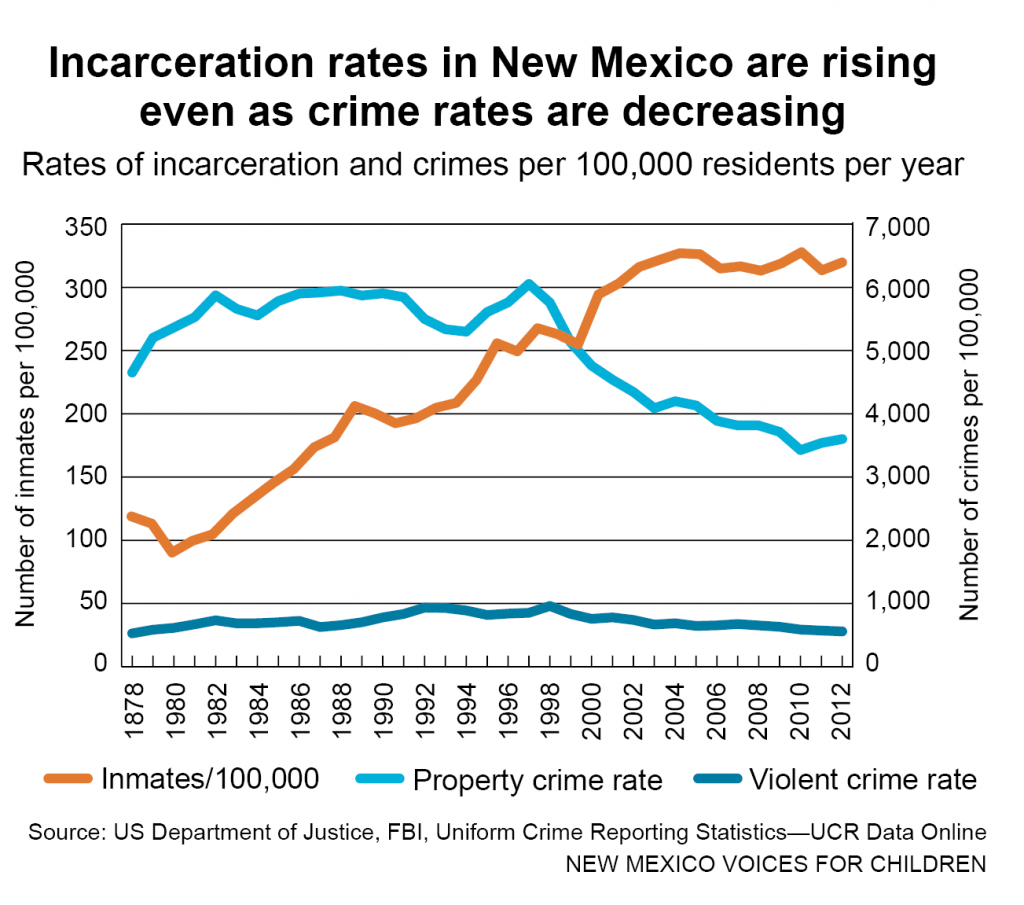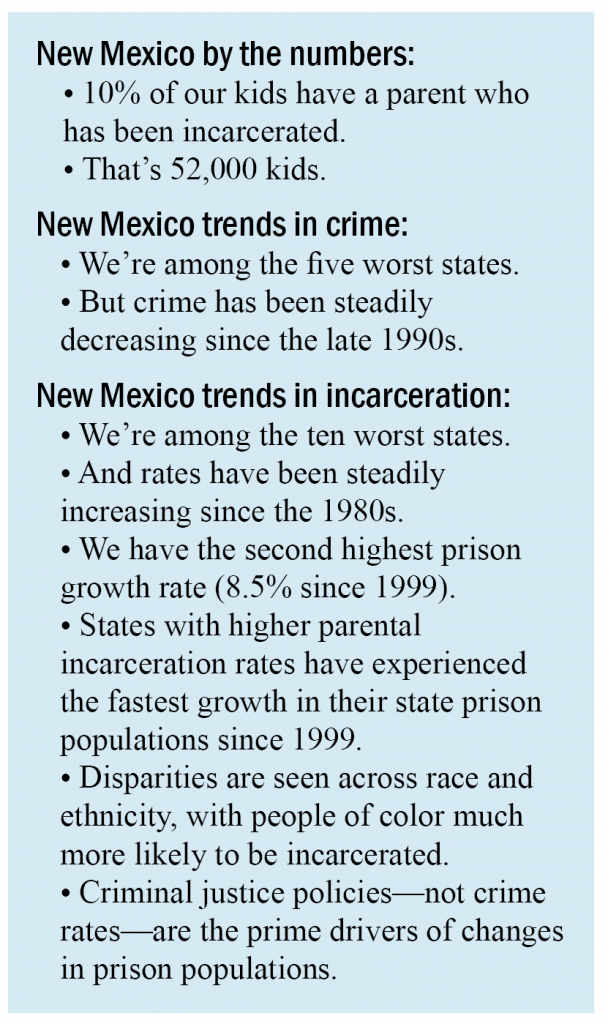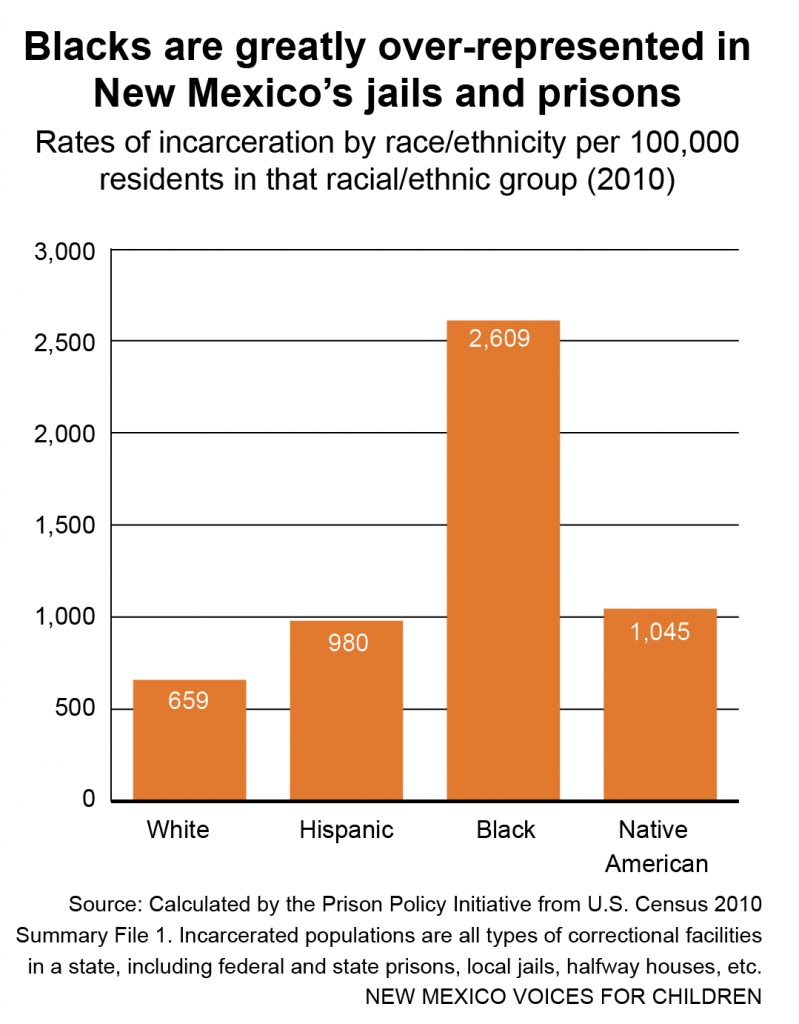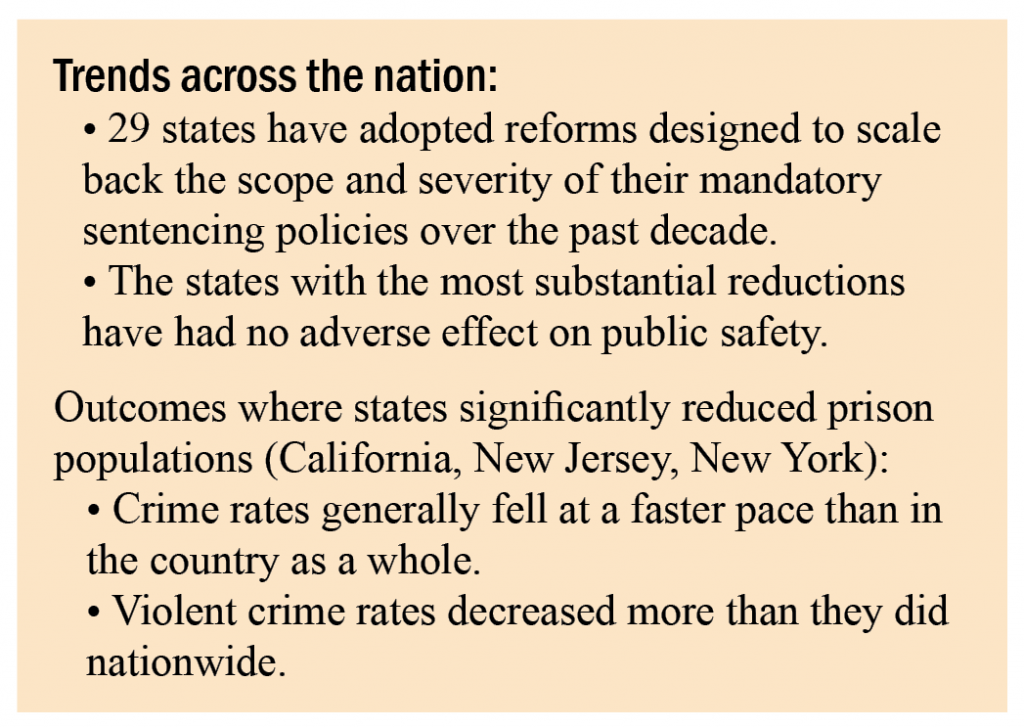Download this KIDS COUNT fact sheet (April 2016; 2 pages; pdf)
Link to the Annie E. Casey Foundation’s report A Shared Sentence
Find more data for New Mexico and the nation on the KIDS COUNT Data Center
There is no bond more powerful or important for a child than the bond they have with their parents. When a parent is incarcerated, that bond is threatened. Incarceration of a parent causes stress, emotional trauma, and often economic hardship for the child and their family.
While it is essential that our criminal justice system works to keep our citizens safe from violent offenders, the war on drugs and the “tough on crime” sentencing laws enacted in the 1990s have resulted in the over-incarceration of non-violent offenders. Not only has this not improved safety in our communities, it has devastated families and communities across the nation.

What’s more—due to systemic racism within the criminal justice system and the fact that a person’s level of wealth and connection to people of influence impacts the level of justice they receive—the families and communities that have been hit the hardest are those that are already the most vulnerable: low-income and communities of color.


 Having a parent incarcerated is a traumatic experience that can be along the same magnitude as abuse, domestic violence, and divorce. It also creates a tremendous vacuum in a child’s life, creates an unstable environment for a child that can have lasting effects on his or her development and well-being, and often adds to the generational pull of poverty.
Having a parent incarcerated is a traumatic experience that can be along the same magnitude as abuse, domestic violence, and divorce. It also creates a tremendous vacuum in a child’s life, creates an unstable environment for a child that can have lasting effects on his or her development and well-being, and often adds to the generational pull of poverty.
Incarceration further destabilizes many families who were teetering on the edge of financial disaster. Losing a parent, especially a breadwinner, for a prolonged period of time, leaves families scrambling to cover basic needs along with legal and other court fees. Sixty-five percent of families with a member in prison cannot meet basic needs. Those left behind report being unable to pay for necessities such as food, utilities, rent, and medical care for their children.
After release, parents and their children may struggle to reconnect on an emotional level, and those with a prison record will likely have a difficult time finding employment.
We must prioritize the needs of children when decisions are made about sentencing parents in order to minimize the impact of incarceration on their lives and give them a fair chance for a bright future.
State and local officials have a series of commonsense solutions at their disposal that could help children now:
• Families and communities impacted by incarceration must be better equipped to care for children financially and emotionally, and their parents prepared to effectively provide for them upon release.
• Schools, neighborhood health centers, and other community- and faith-based agencies need to work more closely with the criminal justice system to build a network of support for children whose parents are incarcerated.
• Correctional systems, communities, and state and local public agencies should allow families the opportunity to preserve their connections during incarceration—ensuring that children are not severed from a loved one and the family can successfully move forward once parents come home.
The Annie E. Casey Foundation, in their policy report A Shared Sentence: The devastating toll of parental incarceration on kids, families and communities offers these primary policy recommendations:
1. Ensure children are supported while parents are incarcerated and after they return.
2. Connect parents who have returned to the community with pathways to employment.
3. Strengthen communities, particularly those disproportionately affected by incarceration and reentry, to promote family stability and opportunity.
Ensuring that our children who have an incarcerated parent have the support systems they need will improve their well-being and their chances for success in school and in life. Only when our kids and families are thriving, can our state can thrive.
KIDS COUNT is a program of the Annie E. Casey Foundation.
